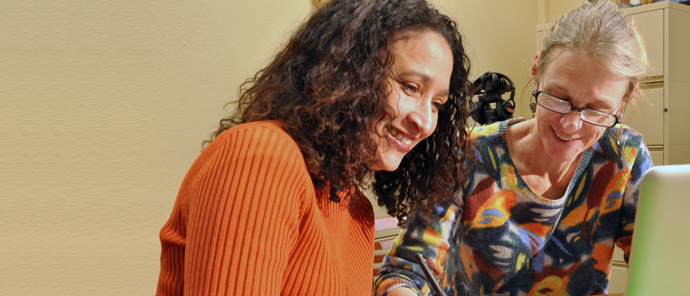From an August 2011 interview with COERLL:
BEB: We see Spanish speakers as one of Texas’ biggest resources. It’s not oil. It’s people! And it’s the language! Unfortunately, Texas Spanish speakers have internalized the notion that their language is somehow corrupted. And they are criticized from both sides. They get it from people who compare them unfavorably to second language learners in the classroom here in the U.S. But they also get it from the other side of the border. This constant criticism makes many speakers shift away from bilingualism, from Spanish.
AJT: Texas Spanish is not in any way deficient, merely different. An important part of our work is to document Texas Spanish as it is, to present the language that students will be exposed to in their communities. The interest has been enormous, and it comes from all corners. We have been contacted by elementary and high school teachers from small towns across the country who are looking for authentic language materials. There is interest from researchers who are examining heritage speakers of Spanish for comparisons to second language learners.
Is it tremendously important for the Spanish in Texas resource to be open and available for a low cost to the general public because of the population whose speech we’re documenting and the students we are hoping will benefit from the materials. These students often view standard Spanish textbooks as foreign language textbooks that don’t reflect the Spanish they actually speak.
BEB: We have an opportunity to put something on the web that does match what they know about their language, which ought to invoke and enhance their literacy skills because they are learning to read in the language that they actually do speak and not one that’s reflective of a foreign standard. And we can change the materials or add to them if they don’t work. We can get input from our users. Ultimately, with continued funding from the government, we can make a great deliverable, an open textbook for heritage Spanish speakers. There are a few on the market now, but they are very expensive and none is ideal.
ATJ: We have noticed that many researchers hoard their data. We’ve encountered a few fairly senior researchers who are probably going to die before they share their data! And we don’t believe in that. Since we’re making the effort to collect the language samples, we’d like them to be used.
Access Spanish in Texas at http://sites.la.utexas.edu/spanishtx.

